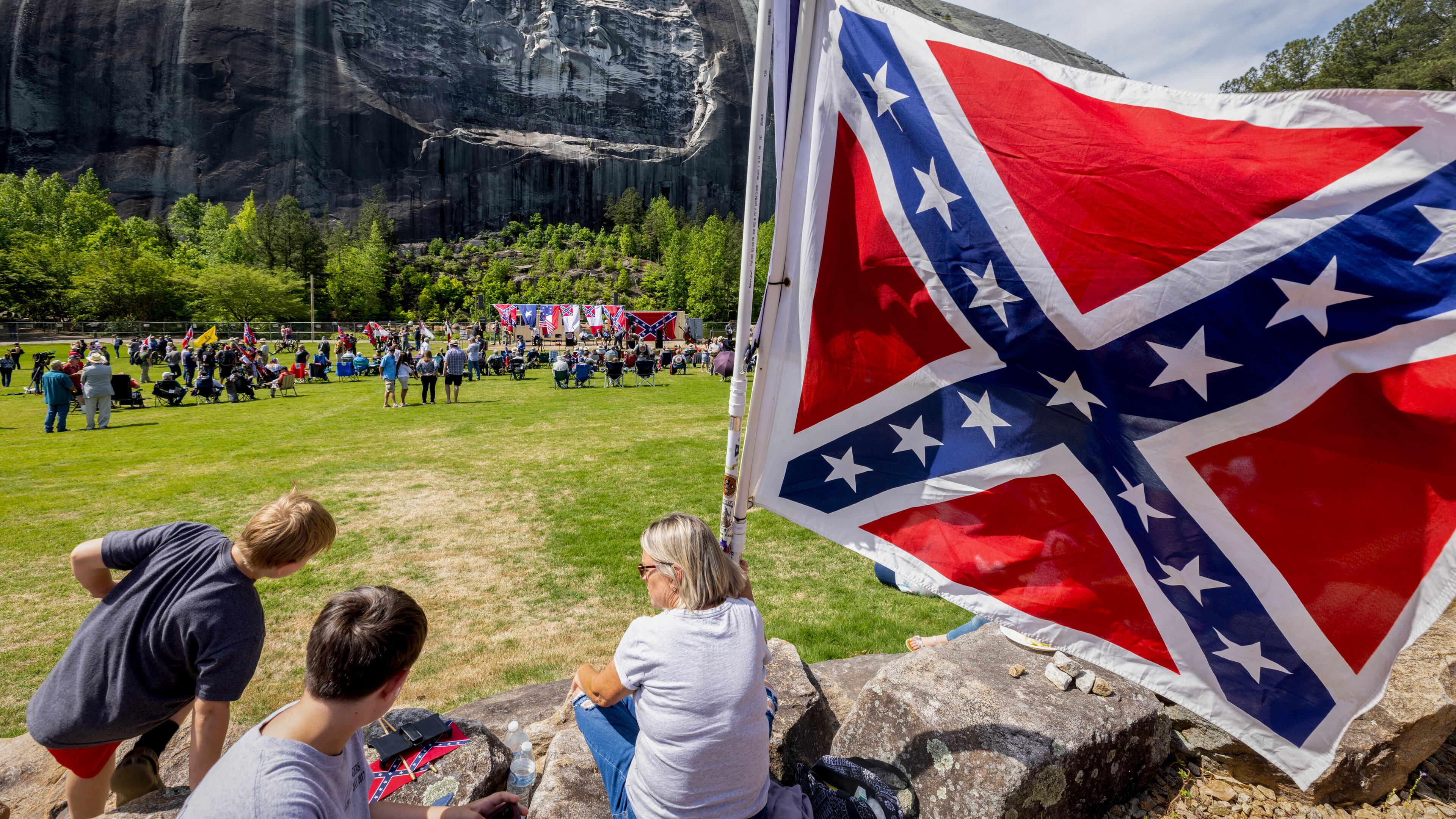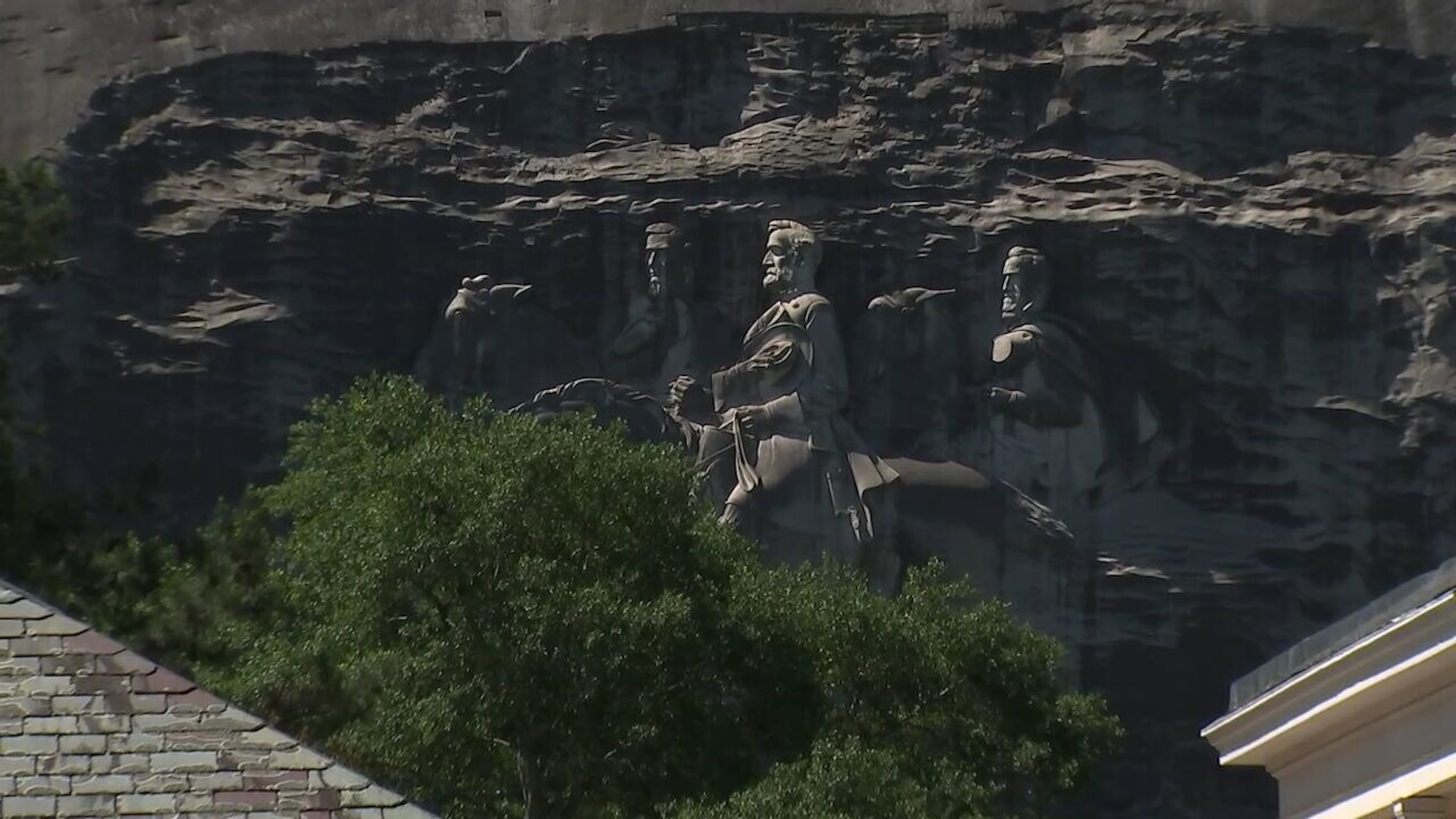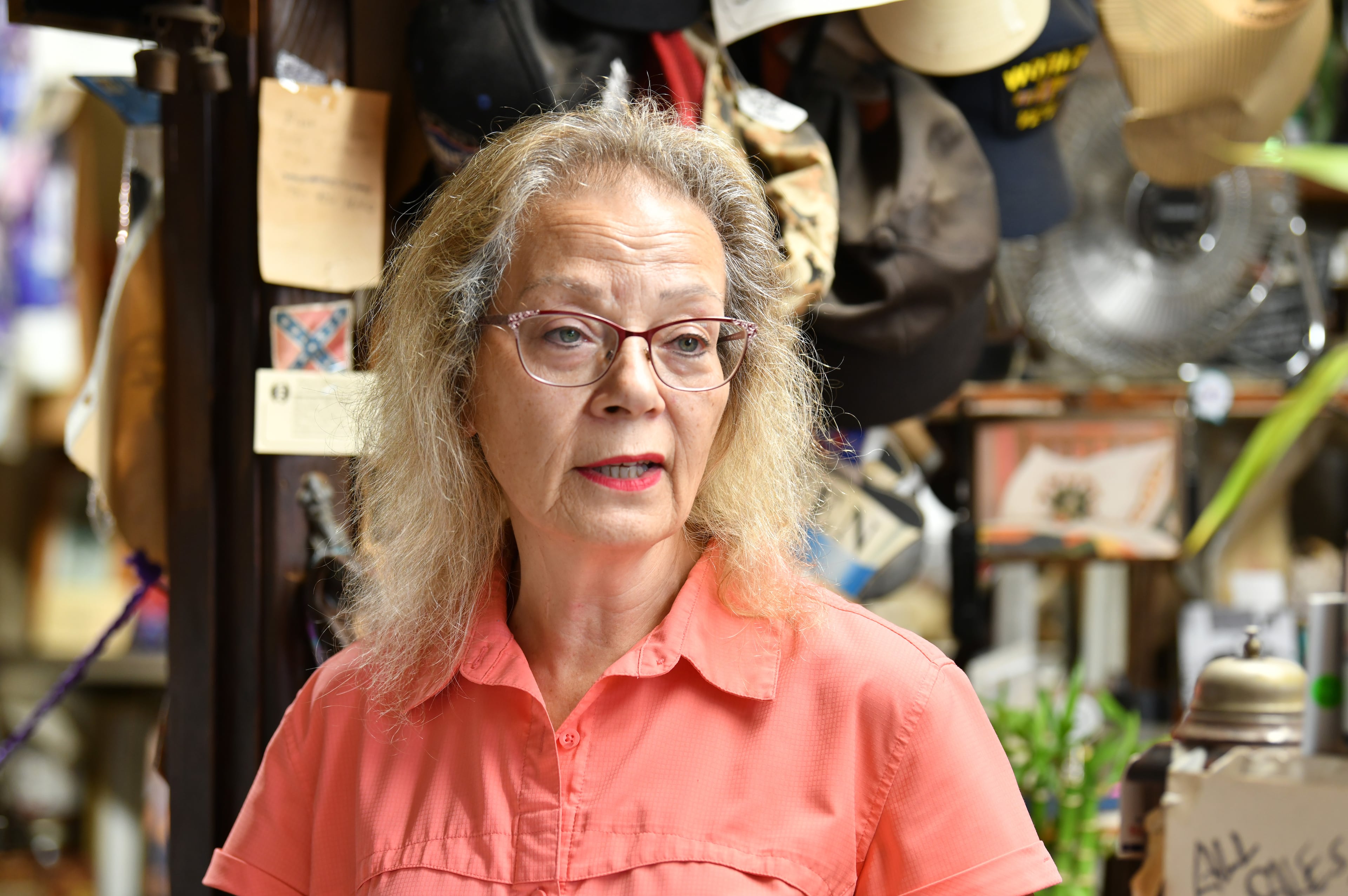Stone Mountain is going ‘woke,’ rebel sons complain

The new museum being built at Stone Mountain Park is set to do a little truth-telling. That’s the problem.
Whose “truth” will it tell?
Truth these days is an elusive commodity. And truths concerning the Civil War have been a battle for 160 years.
In 2022, the Stone Mountain Memorial Association’s board selected Warner Museums to head up an $11 million, state-funded effort to curate a museum at Memorial Hall, which overlooks the park’s (in)famous carving.
Warner’s body of work ranges from the Country Music Hall of Fame in Nashville to civil rights museums like Birmingham’s 16th Street Baptist Church, where four Black girls died in a 1963 bombing, to a Confederacy museum in Alabama.
The Sons of Confederate Veterans have recently filed suit against the state saying the park’s board is not following the law that set up the 3,200-acre memorial/nature reserve. The park’s authority, the lawsuit says, is to “maintain an appropriate and suitable memorial for the Confederacy.”
The planned museum will be the opposite, they contend.
Part of the museum’s mission, said Bill Stephens, head of the park’s authority, “is to tell the full story of Stone Mountain. Some of it is not pretty.”

The effort to carve the three heroes of the Confederacy — Stonewall Jackson, Jefferson Davis and Robert E. Lee — into the side of the mountain gained traction in 1915 after the movie “Birth of a Nation,” which lionized the Confederacy and the Ku Klux Klan. The blockbuster film helped breathe life back into the Klan, and Stone Mountain found itself as a popular place to burn crosses.
The carving effort petered out in the 1920s and was restarted in the late 1950s when white politicians fought against school integration.
So, yes, Stephens is right. It ain’t pretty.
“It’s about memory and myth, about how people come to believe things over time,” he told me. “What I hope is that those buses full of eighth graders will come away from the park knowing something.”
The museum is set to open this fall, said Stephens. The contents are being guarded like Coca-Cola’s secret formula. That’s because Stephens, once a GOP legislator, is walking a tightrope in trying not to rile activists on either side of the fiery debate.
A group called the Stone Mountain Action Coalition was formed with the aim of erasing as much of the memory of secessionists from the park as they can. A leader of that group last year said she worried about the secrecy, concerned the museum might end up being too rebel-friendly.
So they have that in common with the Confederate Sons.

Part of the myth that Stephens was referring to is the notion of the “Lost Cause,” a legend that grew after the war saying the Confederacy was rooted in gallantry, nobility and honor and that “states’ rights,” not slavery, was the root cause of the war.
In the late 1800s and early 1900s, towns across the South erected monuments and statues to that Cause, even though it was decades after the war. The goal was to memorialize and, many historians say, let the large Black population know just where they stood.
A proposal for the park’s museum compiled by the curators, and cited in the lawsuit, says as much: “In the 1890s, organizations like the United Daughters of the Confederacy and the Sons of Confederate Veterans materialized as promoters of Lost Cause ideology, using the Lost Cause memory of the war to build monuments and veterans’ homes, support Confederate-based education initiatives, encouraged federal and state-mandated racial segregation and the disfranchisement of African Americans.”
The renovation would also feature an “I Have a Dream” sculpture garden with statues of Rev. Martin Luther King Jr. and other civil rights leaders.
In a response to the museum proposal, Martin O’Toole, a lawyer who is spokesman for the Sons of Confederate Veterans, wrote: “What was intended to be a memorial to the Confederacy and a recreational area will be modified into a civil rights platform.”
In an interview, O’Toole told me: “They call it ‘truth telling,’ but if they want to do that, then they should change the law (concerning the park.) But they can’t do that.”

He’s probably right. GOP legislators would get eaten up by their base if they went soft on the Confederacy. Just look what is happening with the Trump administration’s effort to go back to the future with Confederate names.
“If you go to the King Center, you won’t expect to hear about his infidelity,” O’Toole said, referring to the controversial book written by civil rights leader, and King friend, Ralph David Abernathy, who made that accusation. “I’d expect the park to present positive values (of the Confederacy). That’s what I’d expect in a memorial.”
O’Toole has for decades had ties to white supremacists and has been a leader of the Charles Martel Society, which an Atlanta Journal-Constitution colleague wrote “publishes a racist pseudo-academic journal with articles questioning the Holocaust and promoting disreputable theories about the genetic intelligence of Black people.”
I asked O’Toole about his views and he said that those and his writings are separate from his role as spokesman for the Sons of Confederate Veterans. He declined to categorize or talk about his other work.
“What I believe and say can be different than the SCV and what the SCV believes and says can be different from what I believe,” he responded.
But, as it turns out, they’re on the same battlefield.



